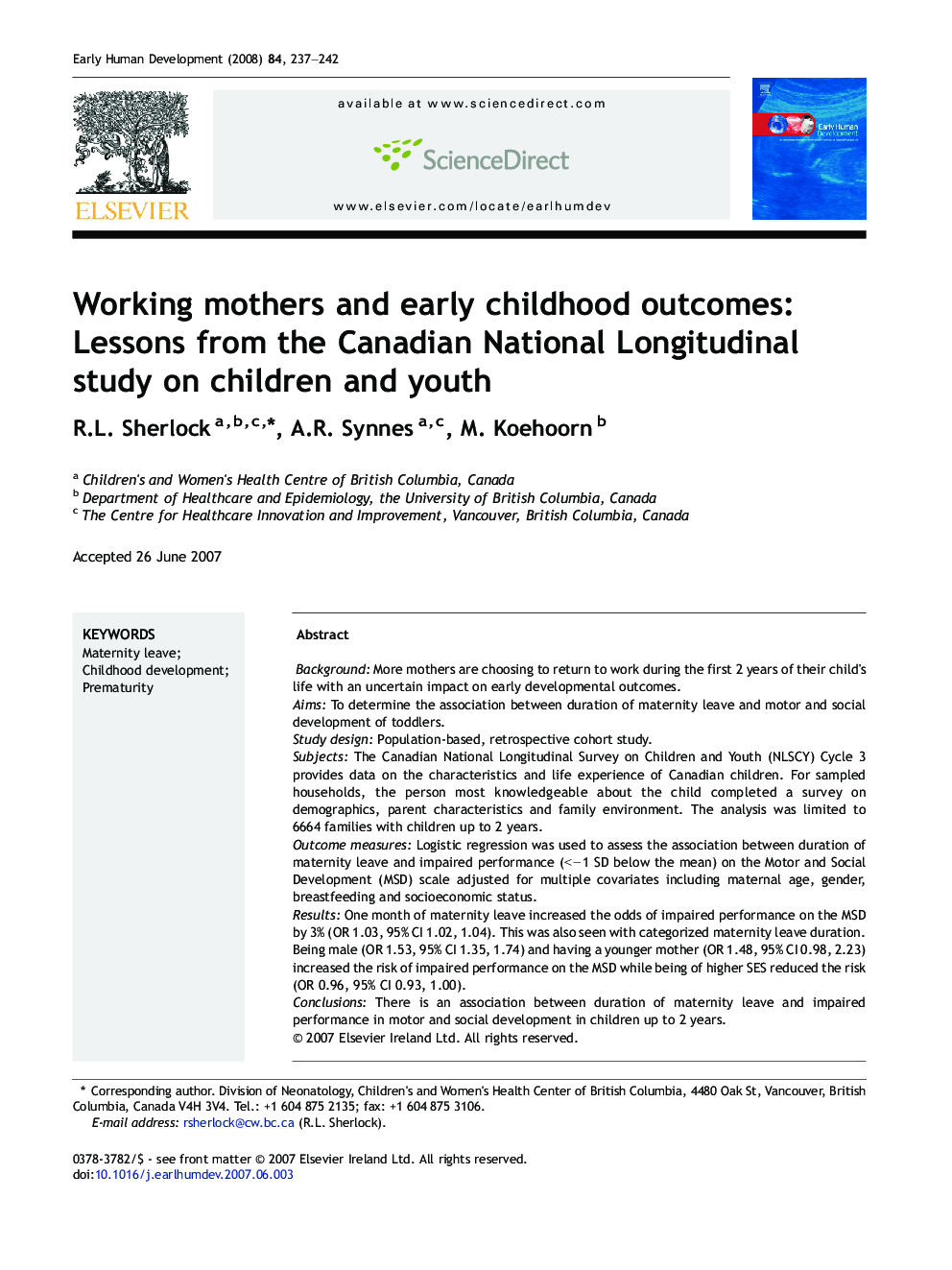| Article ID | Journal | Published Year | Pages | File Type |
|---|---|---|---|---|
| 3918264 | Early Human Development | 2008 | 6 Pages |
BackgroundMore mothers are choosing to return to work during the first 2 years of their child's life with an uncertain impact on early developmental outcomes.AimsTo determine the association between duration of maternity leave and motor and social development of toddlers.Study designPopulation-based, retrospective cohort study.SubjectsThe Canadian National Longitudinal Survey on Children and Youth (NLSCY) Cycle 3 provides data on the characteristics and life experience of Canadian children. For sampled households, the person most knowledgeable about the child completed a survey on demographics, parent characteristics and family environment. The analysis was limited to 6664 families with children up to 2 years.Outcome measuresLogistic regression was used to assess the association between duration of maternity leave and impaired performance (< − 1 SD below the mean) on the Motor and Social Development (MSD) scale adjusted for multiple covariates including maternal age, gender, breastfeeding and socioeconomic status.ResultsOne month of maternity leave increased the odds of impaired performance on the MSD by 3% (OR 1.03, 95% CI 1.02, 1.04). This was also seen with categorized maternity leave duration. Being male (OR 1.53, 95% CI 1.35, 1.74) and having a younger mother (OR 1.48, 95% CI 0.98, 2.23) increased the risk of impaired performance on the MSD while being of higher SES reduced the risk (OR 0.96, 95% CI 0.93, 1.00).ConclusionsThere is an association between duration of maternity leave and impaired performance in motor and social development in children up to 2 years.
